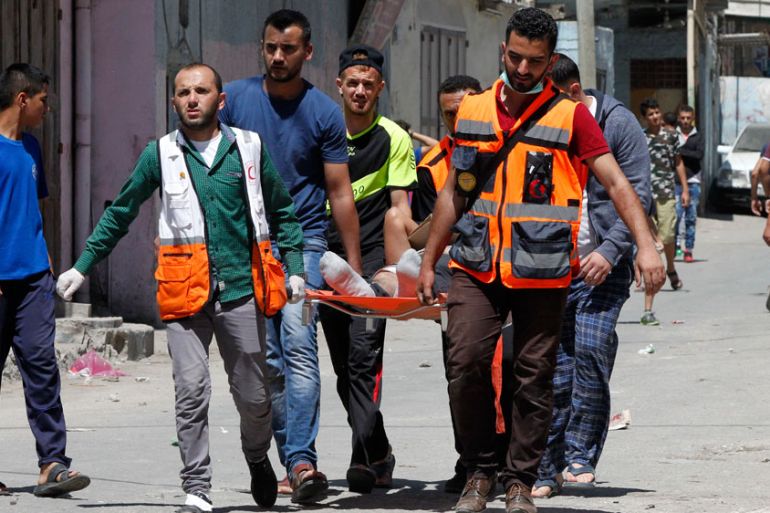Israeli troops shoot dead Palestinian teen in West Bank
Seventeen-year-old was killed after soldiers entered al-Fawwar refugee camp near Hebron to “uncover weaponry”.

A Palestinian teenager has been shot dead during an overnight confrontation with Israeli forces at a refugee camp south of Hebron in the occupied West Bank, Palestinian officials have said.
“Mohammed Abu Hashash, 17, died after he was shot in the chest during clashes with [Israeli forces] in the al-Fawwar camp,” a statement from the Palestinian health ministry said.
Keep reading
list of 4 itemsCanada sanctions Israeli settlers as attacks on Palestinians skyrocket
Sirens sound for 76th anniversary of Palestinian Nakba
Palestinian life under Israeli occupation: An illustrated guideThis article will be opened in a new browser window
At least 40 Palestinians were wounded in the clashes, Red Crescent medics estimated.
The violence broke out when a large convoy of Israeli military vehicles entered the camp where about 10,000 Palestinians live, witnesses said.
The Israeli military did not confirm or deny casualties during the operation, which a spokeswoman said aimed to “uncover weaponry” in the camp.
The soldiers used tear gas and fired .22-calibre rounds.
The army closed off the al-Fawwar camp for 26 days last month after a gunman fired on an Israeli car on a nearby road, causing a crash that killed the driver.
READ MORE: Killing them slowly – diabetes in Palestine
A wave of violence since October has killed 220 Palestinians, 34 Israelis, two Americans, an Eritrean and a Sudanese.
Most of the Palestinians killed were carrying out knife, gun or car-ramming attacks, Israeli authorities say.
Meanwhile, King Abdullah II of neighbouring Jordan has condemned Israeli attacks on al-Aqsa Mosque in occupied Jerusalem.
In an interview with the Jordanian broadcaster Ad-Dustour on Monday, the monarch promised to fight “repeated violations and attacks carried out by Israel and extremist groups” at the holy site.
“We are continuously dealing with … the blatant attempts to change the status quo in Jerusalem, at its landmarks, its heritage sites and historical identity,” the king said.
Jordan is the custodian of the al-Aqsa Mosque compound in Israeli-occupied east Jerusalem and has repeatedly denounced what it says are violations of rules at the site, Islam’s third holiest.